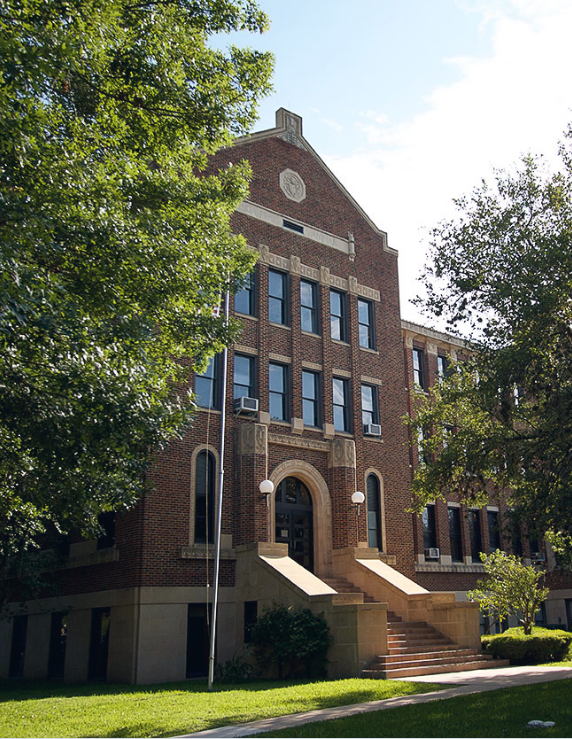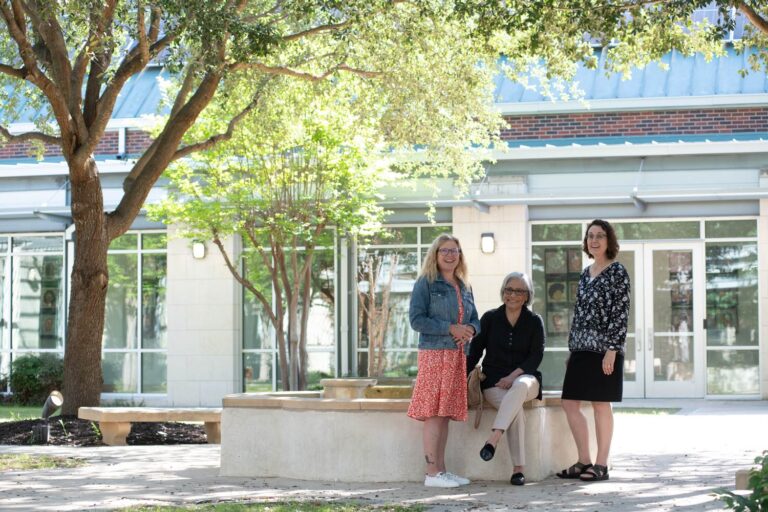Buoyed by the spirit of their ancestors, they dug deep within themselves to forge a link between the African spirituality of their past and the African American spirituality that was coming to birth.
During the period of slavery, whites sought by any means available to curb the proclamation of the Gospel to blacks, and they especially didn’t want it proclaimed by blacks themselves, except under strictly controlled circumstances, a pioneer scholar in black Catholic studies said recently at Oblate School of Theology (OST).
“Blacks believed that the Gospel must have something very important to do with the freedom and well-being of blacks since it was being kept from them,” Dr. Hayes commented, adding: “They somehow managed to ‘re-Christianize’ Christianity.”
Reading from her book Forged in the Fiery Furnace: African American Spirituality, published in 2012, the professor noted that slaves did this by reversing the Christianity of their masters which “called them less than human, claimed that God intended them to be slaves and said that perhaps they didn’t even have souls.” The slaves turned this version of Christianity completely around “because they knew that God was their God and was going to save them,” she said.
“It bears repeating,” she asserted, that “the Christianity of those enslaved and the newly freed was very different from the religion of those who attempted to impose a distorted vision of faith upon them. Black Christians’ belief system may have been structurally similar to that of whites, but it had a very different theological emphasis.”
“Buoyed by the spirit of their ancestors,” the professor continued, “they dug deep within themselves to forge a link between the African spirituality of their past and the African American spirituality that was coming to birth. It was African spirituality that helped those forced into slavery to redefine themselves, find unity and express inner strength despite the experience of oppression,” she said. “African spirituality buffered white slaveholders’ attempts to destroy African cultural identity. “
The religious expression that developed among slaves over the centuries continued after slavery and then took different forms in different places, depending on different societal and cultural values, social status and location.
Dr. Hayes explained that all black religious expression has most of the following attributes: It is animistic, or spirit-filled; anthropocentric, or human-centered; dynamic; expressionistic; shamanistic (believing in communicating with spirits); and thaumaturgic (belief in miracle working).
The major aspect of black Christian belief was embodied in the word “freedom,” the professor pointed out. “For the African in America as a slave, freedom meant release from bondage; after emancipation, it meant education, employment and freedom of movement to the Negro; at the same time, freedom for African Americans is communal in nature. The black church was born in protest, tested in adversity and led by eloquent, courageous preachers. It was the cutting edge of the freedom movement during most of the 19th century,” she asserted.
“It had its beginnings in slavery, while its roots were in Africa. Efforts by blacks to understand the horrible new circumstances in which they found themselves in the Americas led them to reassert their indigenous religious beliefs while at the same time being drawn to new beliefs surrounding them on the plantations and farms, and in homes where they found themselves captive,” she stated.
They didn’t simply accept the Christian faith handed to them or forced on them by their overseers, she said, but went beyond the superficial to the core of Christianity’s affirmation of the freedom and equality of all human beings based on their creation by God, the eternal Father. They built their own institutions: first invisible ones, and then in the hush arbors of slavery and later the actual physical buildings of two Methodist denominations as well as Baptist churches.
“The black church emerged from the religious, cultural and social experience of black people, with its roots on the continent of Africa and the Middle Passage (the transportation of African slaves to the Americas),” she explained.
“The black church provided structure and meaning for African people and their descendants in the Americas and aided them in their struggle to survive the ravages and brutality of slavery and racial oppression.” It functioned as the center of black life, culture and heritage for much of the history of the African American experience in North America, she concluded.
By J. Michael Parker
The Sankofa Institute for African American Pastoral Leadership is an interdisciplinary, multidimensional academic, formation and professional leadership process for developing and supporting pastoral/church leaders committed to ministry and proclamation. All Institute programs foster an understanding and appreciation of African Americans’ contributions to Christian faith, life, and witness in North America and the world.
Diana L. Hayes, J.D., Ph.D., S.T.D., is Emerita Professor of Systematic Theology at Georgetown University, and sits on the Council of Elders of the Sankofa Institute for African American Pastoral Leadership at Oblate School of Theology. Dr. Hayes is an author and editor of numerous books. She has received numerous awards including the Elizabeth Seton Medal for Outstanding Woman Theologian and the US Catholic Award for Furthering the Role of Women in the Church as well as three honorary doctorates. Dr. Hayes has lectured throughout the United States, Europe and in South Africa on issues of race, class, gender and religion, womanist and Black theologies, women in the Catholic Church, and African American Religion(s).



